Centre for Policy Development's Blog, page 52
June 30, 2014
Australian Options | 24 June 2014
 CPD CEO Travers McLeod on the long-term repercussions of no transparency on asylum seeker policy
CPD CEO Travers McLeod on the long-term repercussions of no transparency on asylum seeker policyIn the autumn 2014 edition of Australian Options Magazine, Travers McLeod discusses in his article ‘On War, Water and Information’, the long-term dangers of applying principles of modern information operations (‘IO’) – such as a lack of transparency – to asylum seeker policy.
Travers lays out the underlying fallacy in the government’s current approach:
A lack of footage from the High Seas and detention facilities also makes it problematic for actions to articulate a message in and of themselves.
He also considers the different definitions of IO provided by various Australian and American government officials and bodies – and considers their impacts.
CPD is collaborating with two other organisations to facilitate a high-level roundtable discussion on new approaches to asylum seeker policy at Parliament House in Canberra on 11 July 2014.
Download the 2014 autumn publication of Australian Options containing ‘On War, Water and Information’
Access Australian Options, online
 Help us fill public debates about refugees and asylum seekers with fact: not more fear and misinformation
Help us fill public debates about refugees and asylum seekers with fact: not more fear and misinformation

Sunshine Coast Daily | 26 June 2014
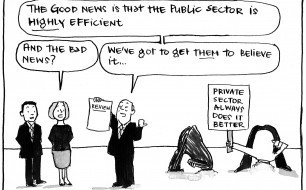 Report: Audit ignores public sector’s wider value to society
Report: Audit ignores public sector’s wider value to societySenior national affairs journalist Daniel Burdon reported that False economies: unpacking public service efficiency, the new report from CPD’s Public Service Research Program, found that the “analysis behind more than 16,000 jobs to go in the Commonwealth public service has ignored the true value of employees’ work”.
Report author Christopher Stone said while the budget assumed smaller government was always more efficient, it did not assess how to achieve government’s aims while minimising the cost of staff and resources.
The short but incisive coverage appeared in several regional newspapers on the east coast, including Fraser Coast Chronicle, Ipswich Times, The Morning Bulletin (Rockhampton), Gladstone Observer, The Northern Star (Lismore), Toowoomba Chronicle and the Warwick Daily News.
Read the article on SunshineCoastDaily.com.au
Read more about False economies: unpacking public service efficiency
Help CPD to counter evidence-free attempts to outsource, downsize and privatise our public services – become an Ideas Sustainer!

June 25, 2014
ABC NewsRadio Breakfast | 26 June 2014
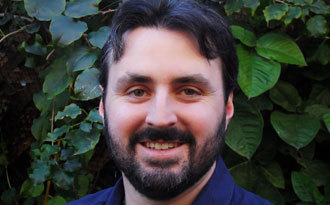
Fiona Ellis-Jones interviewed the research director for CPD’s Public Service Research Program, Christopher Stone.
… is smaller necessarily better when it comes to public services? A new study argues that the keys to public sector efficiency are accountability and innovation…
The False economies series of reports, published today, explores the real meaning of the term ‘efficiency’ in the special context of Australian public service.
Chris alluded to examples from his reports, to illustrate the way that cutting service budgets can end up costing more. He also outlined the scope and implications for the report.
Listen to the interview on ABC.net.au
Read more about the False economies report series, and new chapter Good, better, best
Help CPD to counter evidence-free attempts to outsource, downsize and privatise our public services – become an Ideas Sustainer!

LANDMARK REPORT | False economies, including Good, better, best
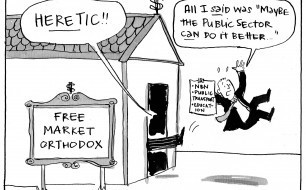 In the wake of the National Commission of Audit and a bleak Federal Budget for public services, CPD releases the compiled and updated False economies series, including the new final instalment Good, better, best (plus an excellent foreword by Terry Moran AC and original cartoons by Fiona Katauskas).
In the wake of the National Commission of Audit and a bleak Federal Budget for public services, CPD releases the compiled and updated False economies series, including the new final instalment Good, better, best (plus an excellent foreword by Terry Moran AC and original cartoons by Fiona Katauskas).Early instalments in the series have clarified the full meaning of ‘efficiency’, highlighted examples of the effects of cuts applied as a result of the term’s misuse, and revealed that the Australian Public Service (APS) is highly efficient – ranking second behind Switzerland among OECD countries. Updated editions of these instalments are included in the full compilation.
 Overall, the False economies series concludes that the way we discuss public service efficiency is damaging the country. The term’s misuse justifies policy approaches that can actually drive inefficiency and waste, and distracts us from good ideas for genuine efficiency improvements. New material draws on interviews with public sector experts to identify innovation and professional accountability as two keys to greater efficiency.
Overall, the False economies series concludes that the way we discuss public service efficiency is damaging the country. The term’s misuse justifies policy approaches that can actually drive inefficiency and waste, and distracts us from good ideas for genuine efficiency improvements. New material draws on interviews with public sector experts to identify innovation and professional accountability as two keys to greater efficiency.
Good, better, best finds that the National Commission of Audit and Federal Budget adopted a narrow approach to questions of efficiency. In striving for ‘smaller and more rational government’, the value delivered by some affected agencies is largely overlooked to deliver ‘leaner business-like ways of operating’. An Efficiency Dividend of 2.5% will compound this, resulting in across-the-board cuts to services ‘regardless of their utility’. The upshot is that the Federal Government is withdrawing from (or reducing) a range of services, threatening the overall efficiency and effectiveness of the Australian Public Service at a time of increasing uncertainty.
The current budget estimates the loss of 16,500 public service jobs in the next two years – a similar scale of cuts to those of the early Howard Government, which were followed by rapid staff increases within a few years. Such fluctuations threaten allocative and dynamic efficiency, stripping out skills and eroding competencies in key areas.
The budget assumes smaller government is necessarily more efficient. It lacks a serious examination of how best to achieve aims with minimal resources, and instead simply attempts to minimise resources. – Chris Stone
Public sector innovation faces different constraints to those in the private sector, often operating in a risk-averse environment with a lack of investment. The report recommends cost-effective measures to support innovation, including cross-agency innovation teams, incentive schemes and a dedicated innovation fund.
Public service goals are more complex than the private sector profit drive, and this special context requires an emphasis on professional accountability. The report recommends the APS should: focus on organisational outcomes, with clearly defined priorities informed by a national planning process; improve accountability by closer engagement with service users and front-line public servants; reinforce efforts to increase trust between management and staff; and work for more constructive relationships between ministers and public servants.
Chris Stone said: These are complicated areas for reform, but could generate real improvement to the services that will be vital to all Australians in a time of growing complexity and uncertainty.
Downloads:
| Compiled False economies series |
| Front material (foreword, contents, etc.) | Chapter 1: Decoding efficiency | Chapter 2: Bang for our bucks | Chapter 3: Good, better best |
Note: The updated content of False economies: Doing less with less has been split into a series of boxed inserts included in chapters 1 and 2. The updated contents of the other reports appear in the chapter of the same name.
Links to the previous publications can be found below:
False economies: Decoding Efficiency | False economies: Doing less with less | False economies: Bang for our bucks

Australian Financial Review | 26 June 2014
 Centre’s focus on making red-tape cuts really count.
Centre’s focus on making red-tape cuts really count.AFR columnist Verona Burgess devoted her weekly government services column to an exposition and analysis of CPD’s latest publication, the full compiled report series, False economies: unpacking public service efficiency.
The Centre for Policy Development been busy marshalling arguments about how best to make the public sector more efficient.
For those with an online subscription, read the article on AFR.com, or find it on page 16, 26 June edition
Read more about the False economies series and its new final chapter, Good, better, best
Help CPD to counter evidence-free attempts to outsource, downsize and privatise our public services – become an Ideas Sustainer!

June 10, 2014
South China Morning Post | 9 June 2014

China-fuelled mining boom a double edged sword for Queensland.
CPD Sustainable Economy Research Director contributes to international perspective on Qld
Research Director Laura Eadie shared her insight with the South China Morning Post on the dangers to Queensland in relying so heavily on resource exports to China.
In addition, Laura noted the deterioration of Queensland’s non-mining industries- especially as China begins diversifying away from heavy industries.
“There is very little going to boost local employment near the mines,” Laura says. “If you are not going to have long-term jobs [in the local community] what happens when the boom is over?”
Read the South China Morning Post article.
Read more about Laura Eadie’s All boom, no benefit? report
 Short-term thinking cannot address Australia’s long-term dilemmas – Help us look further ahead!
Short-term thinking cannot address Australia’s long-term dilemmas – Help us look further ahead!

Julian Burnside AO QC awarded 2014 Sydney Peace Prize
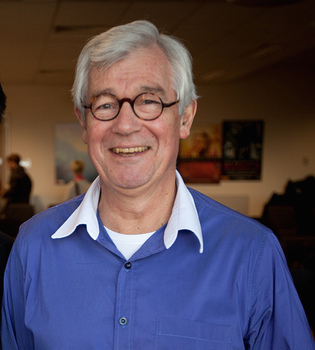 Congratulations to CPD’s Patron
Congratulations to CPD’s PatronFor his contributions to human rights advocacy, CPR patron Julian Burnside AO QC has been selected to be given the 2014 Sydney Peace Prize by the Sydney Peace Foundation. His work can be seen across a wide range of fields; from representing those suffering from government abuse of power to advocating Australia’s international law obligations towards asylum seekers.
Jangle Singleton AM, the Director of the Sydney Peace Foundation said:
“Julian Burnside is a splendid choice. All nominations were remarkable people doing extraordinary things in a myriad of ways, but the Jury chose Julian Burnside for his unflinching advocacy and commitment.”
Julian had this to say regarding his selection:
“I am deeply honoured to be selected to receive this year’s prize, especially in a year when Australia’s reputation is being tarnished by its intentionally harsh treatment of asylum seekers. I have long admired the work of the Sydney Peace Foundation. It continues to advocate for human rights and promote peace. It helps keeps our focus on the importance of the rule of law, the need to treat all human beings with compassion and the need to ensure that human rights are respected.”
He is due to receive the award at the 2014 City of Sydney Peace Prize Lecture at Sydney Town Hall on Wednesday 5 November.
For more information, you can go to the Sydney Peace Prize Foundation website.

June 4, 2014
Message from John Menadue AO – CPD’s End of Financial Year Appeal
 Dear Friends,
Dear Friends,Australia needs more independent, long-term thinking that puts the national interest ahead of the ballot box.
That is what the Centre for Policy Development has been delivering since I founded it in 2007. CPD creates viable ideas on the back of careful research and works with experts and stakeholders to turn these ideas into practical policy proposals.
I am seeking your renewed support so that CPD can continue to make a difference and grow the policies Australia needs.
This is what CPD has been up to recently:
CPD’s speaking tour for Pascal Lamy was covered nationally and included meetings with government, business, academic and community leaders in Melbourne, Sydney and Canberra.
We were the Australian partner for the launch of Now for the Long Term, the report of the Oxford Martin Commission for Future Generations.
CPD is working with Australia21 and UNSW to hold a high-level roundtable on asylum seeker policy in Canberra this July, with CPD fellows taking the lead in writing the discussion paper.
CPD’s Sustainable Economy program was ranked among the world’s top multidisciplinary think tank research programs; its work on resilient growth has been covered at home and abroad.
Our False economies series has shown Australia’s public service to be the second most efficient in the OECD, delivering rigour to debates about effective government and service delivery.
But there is so much more to do.
Whether it be on Australia’s new growth industries, tax reform, infrastructure, federal-state relations, youth unemployment or Australia’s place in the world, CPD needs your help to tackle these issues and grow in size, output and impact.
On each issue CPD’s approach will be unwavering: independent,non-partisan, and evidence-based. Reaching across party lines, industries, departments and borders. Policies that can outlast governments and safeguard current and future generations.
Help CPD to lift Australia’s sights by making a tax-free donation or becoming a regular Ideas Sustainer now.
Thanks for your support,
John Menadue AO, CPD Founder and Fellow
[John Menadue served as Australia's Ambassador to Japan, was Secretary of the Department of Prime Minister and Cabinet under Prime Ministers Whitlam and Fraser, and is a former Qantas CEO.]
PS: CPD warmly congratulates its patrons for their recent honours. Julian Burnside AO QC has been selected as the recipient of the 2014 Sydney Peace Prize, just months after the Hon Fred Chaney AO was named Senior Australian of the Year.

June 3, 2014
Oxford Martin School website | 3 June 2014
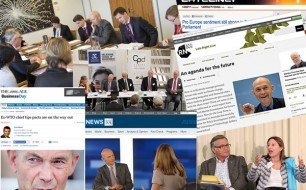 Oxford Martin Commission report launched in Australia
Oxford Martin Commission report launched in AustraliaThe School acknowledged the successul work of Centre for Policy Development on the speaking tour of Melbourne, Canberra and Sydney for Pascal Lamy, former World Trade Organization Director General. The tour marked the Australian launch of Now for the Long Term, the recent report of the Oxford Martin Commission for Future Generations.
Following on from successful events in Europe, Africa, Asia, and North America, Oxford Martin Commission Chair Pascal Lamy visited Australia last week to highlight the Commission’s report Now for the Long Term to Australian academic, business, government and community leaders in public and private events in Melbourne, Canberra, and Sydney.
Read the full story on the Oxford Martin School website
Short-term thinking can’t address Australia’s long-term dilemmas – Help CPD look further ahead!

June 2, 2014
The Sydney Morning Herald | 1 June 2014
CPD Fellow Ian Dunlop on government climate change denial and why we need science more than ever.
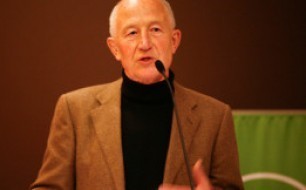 In an article titled ‘Burning the Science Books’, Ian Dunlop addresses the present dangers of the government’s refusal to acknowledge climate change and the need for all policy – economic or otherwise – to incorporate effective climate change practices.
In an article titled ‘Burning the Science Books’, Ian Dunlop addresses the present dangers of the government’s refusal to acknowledge climate change and the need for all policy – economic or otherwise – to incorporate effective climate change practices.
The federal government is taking anti-science to new heights. Its scorched earth approach discards virtually everything not in line with narrow, free-market ideology, centred on sustaining Australia’s 20th century dig-it-up and ship-it-out economic growth model.
‘Burning the Science Books’ can be downloaded here.
Access the edited version of this article in The Sydney Morning Herald

Centre for Policy Development's Blog
- Centre for Policy Development's profile
- 1 follower



